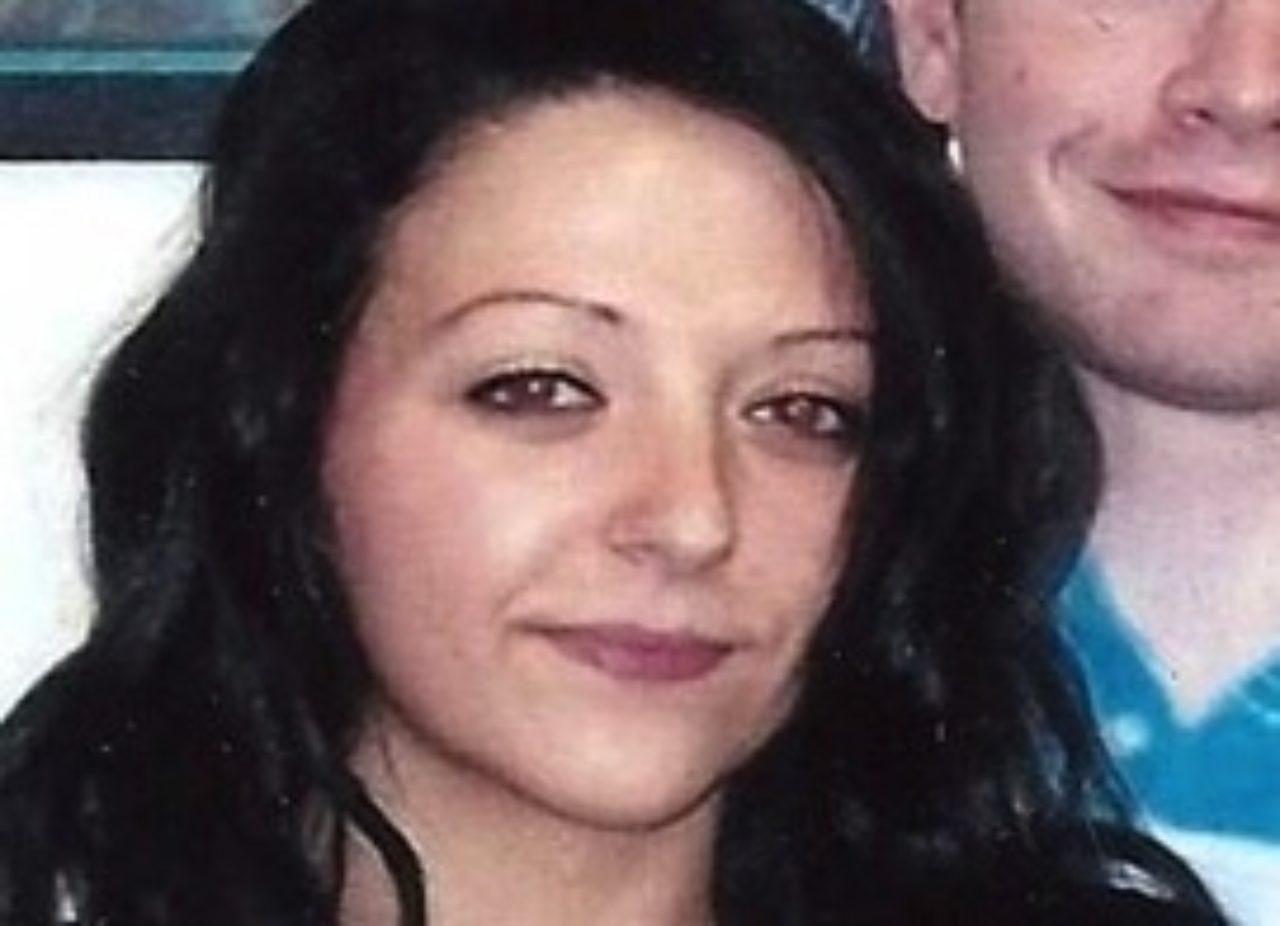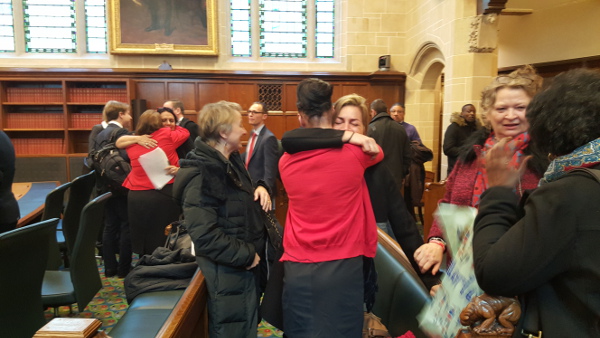Three years on from a landmark ruling by the Supreme Court that the law on joint enterprise had ‘taken a wrong turn in 1984’, campaigners are calling on parliament to reform the controversial legal doctrine following a failure by the courts to recognise the problem.
On February 18th 2016, Lord Neuberger handed down judgment in the case of R v Jogee saying: ‘This court is always very cautious before departing from a previous decision. It is the responsibility of this court to put the law right.’
The ruling was widely hailed as a landmark judgement. The Criminal Bar Association even issued a press release declaring the ruling ‘a masterpiece of modern legal reasoning’ and one that ‘significantly enhanced our justice system’ which would be ‘widely welcomed’.
It was anticipated that numerous successful appeals would follow but, three years, there has been just one successful appeal.
The campaign group JENGbA will be demonstrating outside the Supreme Curt this morning. ‘When the Supreme Court acknowledged the law had taken a wrong turn for over 30 years we truly believed the injustice delivered to so many would be put right,’ comments JENGbA’s Jan Cunliffe. ‘We are horrified by the blatant disregard the courts have for natural justice and towards ordinary people who’s lives have been destroyed by a law that was misinterpreted by Judges, the very people we now turn to for a remedy.’
At a meeting of the all-party parliamentary group on miscarriages of justice earlier this month (as reported on the Justice Gap), Lucy Powell MP argued that politicians now needed to step in where the courts had failed. ‘We’ve come to the conclusion in Parliament – many MPs across parties who have been been working with JENGbA for years – that the law needs to change,’ said the Labour MP for Manchester Central. We need to rectify the law because it is not happening by itself through caselaw.’
*
The miscarriage of justice watchdog in its 2018 annual report reported that it received 103 applications based on the Jogee ruling. However the Court of Appeal quickly dashed the hopes of many. In October 2016 the court denied leave to appeal to 13 defendants in six separate cases in the case of R v Johnson & other.
Where an appeal is brought outside of the 28-day limit, the defendant must seek exceptional leave to appeal to the Court of Appeal. According to the ruling in Jogee, permission to appeal could be granted if ‘substantial injustice’ could be demonstrated but it would not do so ‘simply because the law applied has now been declared mistaken’.
As the Centre for Criminal Appeals’ Sophie Walker wrote in an article for the Justice Gap, the Supreme Court had effectively ‘handed the baton back to the Court of Appeal’. In Johnson, she reported that the Lord Chief Justice, Lord Thomas of Cwmgiedd showed how difficult it would be for defendants seeking to rely on the Jogee decision. ‘Sitting alone and looking out across benches of men and women wearing JENGbA’s trademark red t-shirts, he read out a short statement denying leave to appeal to all thirteen defendants,’ she wrote. ‘He reached the end of the judgment to sounds of a woman sobbing in the corridor. Shouts of “no justice, no peace” were made as the judge walked out of the courtroom.’
 The only successful appeal concerned the case of John Crilly who was sentenced to life for the murder of a pensioner and robbery with a minimum term of 19 years. In April last year, Crilly pleaded guilty to manslaughter. He had already served 13 years and was released from prison.
The only successful appeal concerned the case of John Crilly who was sentenced to life for the murder of a pensioner and robbery with a minimum term of 19 years. In April last year, Crilly pleaded guilty to manslaughter. He had already served 13 years and was released from prison.
I spoke to Crilly after his release. ‘Of all the cases I have known and heard about, I felt that I wasn’t the worthy one,’ he told me. Crilly, who was then finishing off a law degree, had himself written about the unfairness of the common law doctrine of joint enterprise. ‘There are a lot of people more innocent than me who should be getting out as well,’ he said. It is bitter sweet.’
*
 There was further disappointment for campaigners and lawyers when the case of Laura Mitchell was rejected by the Appeal judges last November.
There was further disappointment for campaigners and lawyers when the case of Laura Mitchell was rejected by the Appeal judges last November.
Writing for the Justice Gap, Felicity Gerry QC pointed out that Mitchell ‘was not there at the killing, there was no clear plan to kill and the jury were not properly directed on a crucial aspect of law’.
‘One would have thought that allowing an appeal because the judge got the law wrong was a “no brainer”,’ wrote Gerry, who was leading counsel for Jogee. However, she added that in joint enterprise appeals the Court of Appeal was ‘applying a different standard’. In reality, the substantial injustice test amounted ‘to the opinion of the Court of Appeal that an appellant is guilty anyway, without ordering a retrial’, she argued. ‘It beggars belief that an injustice, in this context, is not thought to be sufficient to make a conviction unsafe – isn’t that what we understand a miscarriage of justice to really mean? That a person was wrongfully convicted.’
‘Joint enterprise exposes all that is wrong with our justice system and we, as lawyers, are forced to take opportunities to assist campaigners rather than see our justice system function fairly.’
Felicity Gerry QC
Gerry argues that that the Supreme Court ‘seems to have coordinated’ the approach taken by the Court of Appeal to apply the substantial injustice test. She points out that the then Lord Chief Justice Thomas who sat on Johnston was ‘bumped up’ and sat with the Supreme Court on Jogee. ‘There are two major problems which are arguably constitutional,’ she says. Firstly, parliament abolished the felony murder rule where people were liable for the probable consequences of their actions. ‘The courts then deliberately created liability for foresight of possible consequences of what someone else might do,’ she says. ‘Clearly ignoring a clear indication by Parliament to stick to the foundational law of intention to assist or encourage.’ Secondly, parliament abolished the proviso that effectively judges could uphold a conviction if they considered a defendant still guilty but, she adds, ‘that is the effect of the application of the substantial injustice test’.
The Johnson ruling has proved to be ‘a near insuperable hurdle’ for those seeking to appeal joint enterprise, reckons Simon Natas, Laura Mitchel’s solicitor who advises JENGbA. Natas points out that there is now an alternative line of non-joint enterprise cases in which a different test for substantial injustice has been applied.
In the case of R v Ordu, the applicant was a former asylum seeker who had been convicted more than a decade ago of using a false passport to enter the country, even though his refugee status should have afforded him a defence. In another case (GS), the court applying Ordu said the test was whether the defendant could ‘demonstrate an arguable case as to the unsafety of the conviction’ and whether there were practical consequences of upholding the conviction. It decided that there was an arguable case as to the safety of the conviction and then determined that the applicant’s conviction would potentially affect her right to remain in the UK in the future. It granted leave but ultimately declined to quash the conviction.
‘Following the refusal of Laura Mitchell’s appeal, the Court of Appeal was asked to certify a question for the Supreme Court which was designed to clarify the test for substantial injustice. However, it declined to do so,’ Natas said.
Laura Mitchell’s legal team attempted to appeal to the Supreme Court but were effectively blocked by the Court of Appeal. In doing so, they asked for the Court of Appeal to certify two questions for the Supreme Court justices including whether the primary test for substantial injustice was whether there was a sufficiently strong test that the defendant would not have been convicted if the law had been correctly explained.
The Court of Appeal declined to certify the questions saying they ‘raised no point of general public interest’. At this month’s APPG JENGbA called on politicians to raise the issue and push for clarity.




